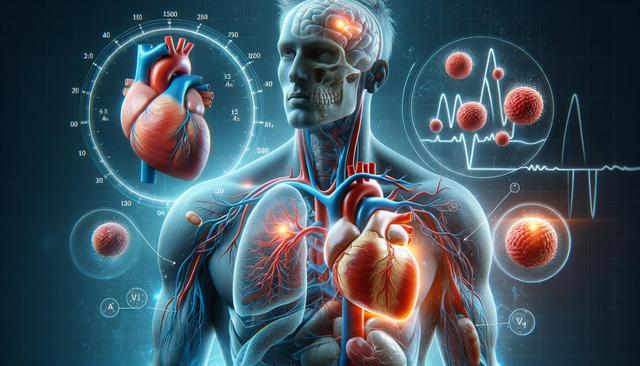Understanding Common Cardiology Diseases
Cardiology encompasses a wide spectrum of conditions that affect the heart and blood vessels. Common Cardiology Diseases include coronary artery disease (CAD), heart failure, arrhythmias, and valvular heart disease. These conditions can significantly impact a person’s quality of life if not diagnosed and managed early. Coronary artery disease, for example, occurs when the arteries that supply blood to the heart become narrowed or blocked, often due to plaque buildup. This may lead to chest pain, shortness of breath, or even a heart attack.
Arrhythmias refer to irregular heartbeats, which can be either too fast, too slow, or erratic. While some may be harmless, others can increase the risk of complications such as stroke. Heart failure, another common condition, doesn’t mean the heart has stopped working but rather that it is not pumping blood as efficiently as it should. Valvular heart disease involves damage or a defect in one of the four heart valves, which can disrupt normal blood flow. Recognizing these conditions early can lead to better outcomes through timely intervention and treatment.
Recognizing Heart Disease Symptoms
Identifying Heart Disease Symptoms early is essential for effective management. Symptoms can vary depending on the specific condition, but there are several signs that should not be ignored. These include:
- Chest pain or discomfort
- Shortness of breath
- Irregular heartbeat
- Fatigue and weakness
- Swelling in the legs, ankles, or feet
It’s important to note that symptoms may differ between men and women. For instance, women may experience more subtle signs such as nausea, lightheadedness, or jaw pain. Additionally, some individuals may be asymptomatic, particularly in the early stages of heart disease. Regular health check-ups and discussions with your healthcare provider can help identify potential problems before symptoms become severe.
Early detection allows for a wider range of Cardiovascular Disease Treatment options, which may include lifestyle changes, medications, or procedures like angioplasty or surgery. Being proactive about your heart health can make a significant difference in outcomes.
Available Cardiovascular Disease Treatment Options
Once diagnosed, Cardiovascular Disease Treatment will depend on the type and severity of the condition. Treatment options range from conservative approaches to more invasive procedures. The goal is to manage symptoms, prevent disease progression, and reduce the risk of complications.
Common treatment strategies include:
- Lifestyle modifications such as a heart-healthy diet, regular exercise, and quitting smoking
- Medications to control blood pressure, cholesterol, and heart rhythm
- Interventional procedures like stenting or angioplasty to open blocked arteries
- Surgical options such as bypass surgery or valve repair/replacement
In recent years, advances in medical technology have significantly improved the effectiveness of these treatments. Working with experienced cardiologists can help ensure the most appropriate and personalized care plan. Many patients benefit from a multidisciplinary approach involving nutritionists, physical therapists, and other specialists to support recovery and long-term health.
Preventing Heart Conditions Before They Start
Preventing Heart Conditions is often more effective than treating them after they develop. A focus on prevention involves managing risk factors such as high blood pressure, high cholesterol, diabetes, and lifestyle habits. Regular screenings and maintaining a dialogue with your healthcare provider are vital components of heart disease prevention.
Key practices include:
- Maintaining a balanced diet low in saturated fats and high in fiber
- Engaging in at least 150 minutes of moderate aerobic exercise weekly
- Managing stress through relaxation techniques or therapy
- Avoiding tobacco and limiting alcohol consumption
- Monitoring and managing chronic conditions like diabetes and hypertension
Many preventive strategies are simple yet powerful when practiced consistently. By adopting a proactive mindset, individuals can significantly lower their risk of developing heart-related issues and enjoy better overall health.
Choosing the Right Specialist: Top Cardiologists in USA
Finding the right healthcare provider is crucial when managing or preventing heart disease. Top Cardiologists in USA are known for their expertise, research contributions, and use of advanced diagnostic tools. Whether you’re seeking a second opinion or a long-term care plan, choosing a well-regarded specialist can provide reassurance and clarity.
When evaluating cardiologists, consider the following:
- Board certification and years of experience
- Patient reviews and hospital affiliations
- Access to the latest treatment technologies
- Clear communication and personalized care plans
Many leading cardiology centers offer comprehensive services, including diagnostics, treatment, and rehabilitation. It’s beneficial to research and consult with multiple professionals if needed, especially for complex or chronic conditions. A trusted cardiologist can be a valuable partner in your journey to better heart health.
Conclusion: Take Charge of Your Heart Health
Understanding Common Cardiology Diseases and recognizing early Heart Disease Symptoms are critical steps in protecting your health. With a wide array of Cardiovascular Disease Treatment options available and effective methods for Preventing Heart Conditions, there has never been a better time to take a proactive role in your well-being. Consulting with Top Cardiologists in USA can ensure you receive expert guidance tailored to your individual needs. Your heart is central to your health—taking care of it today can lead to a stronger, healthier tomorrow.




Leave a Reply